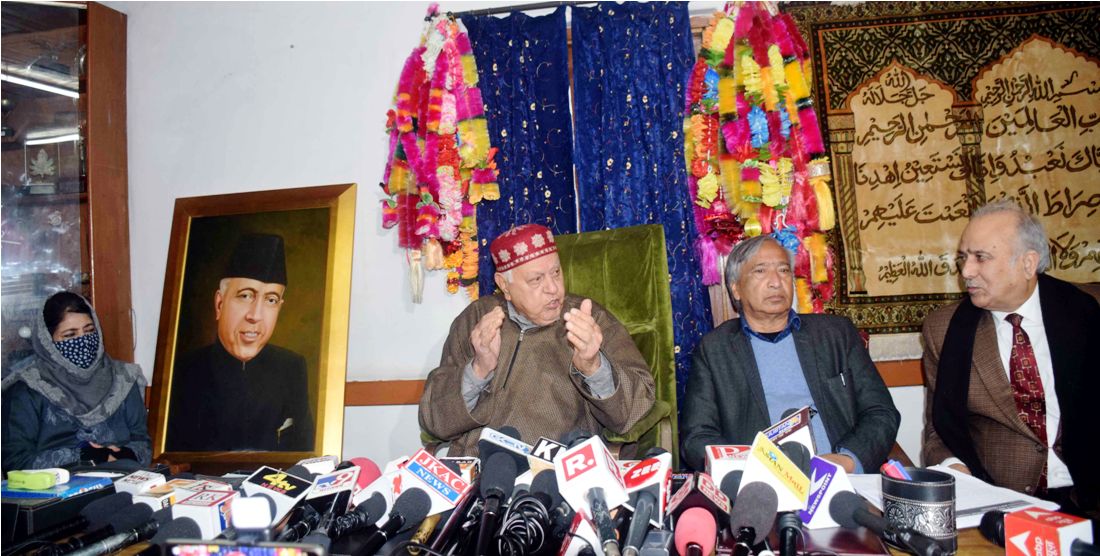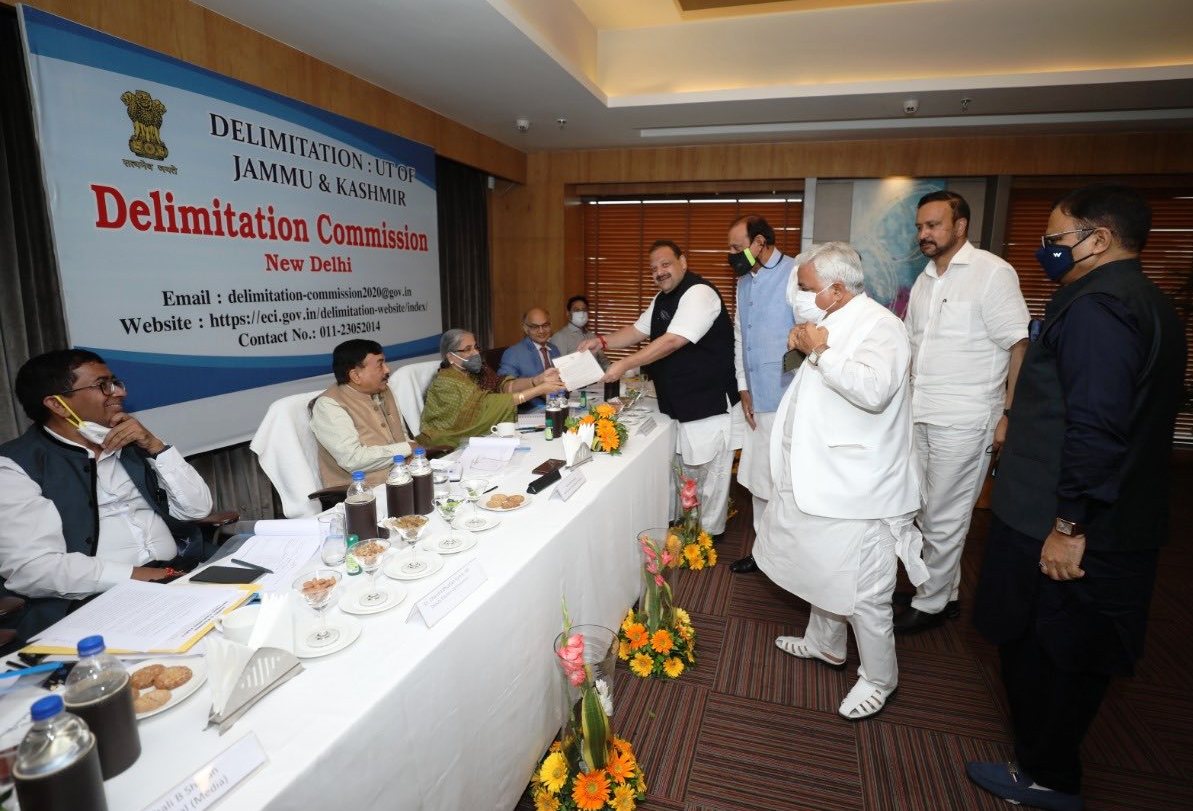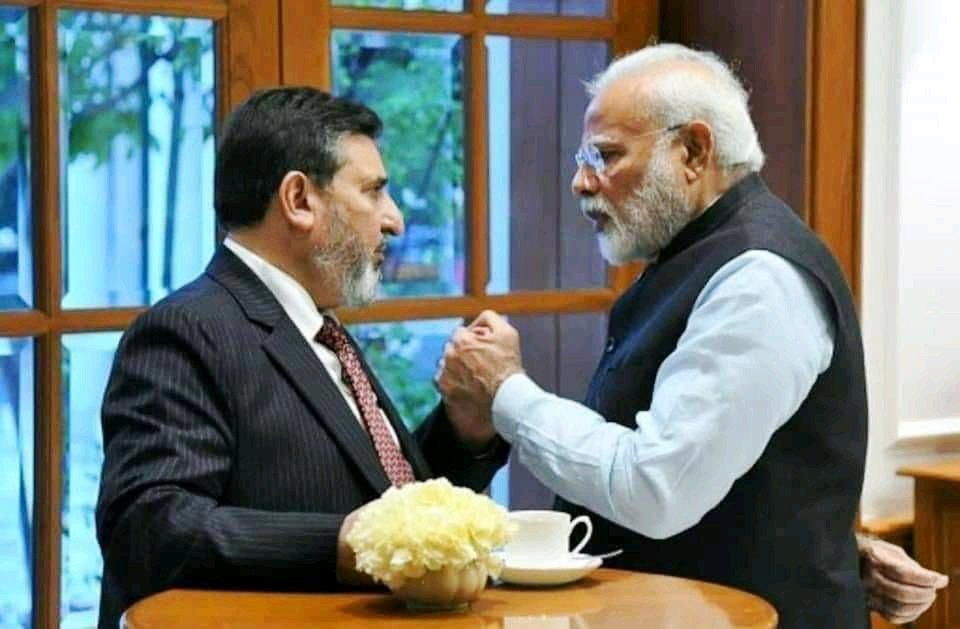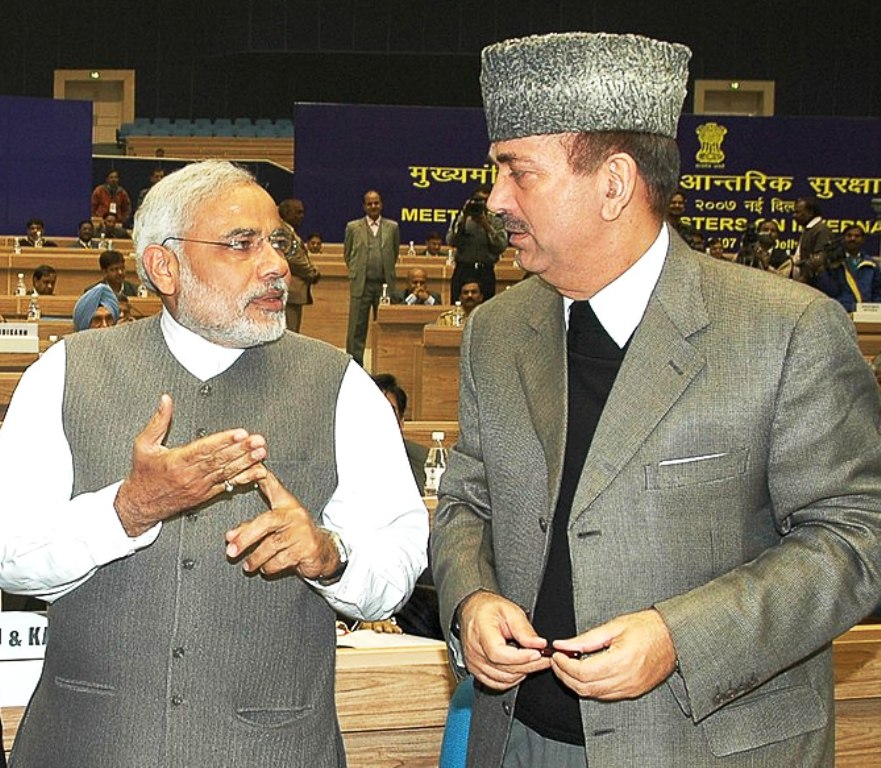Indications suggest that Jammu and Kashmir may have an assembly in place by the end of 2022. While NC and PDP have claimed that it will have ratification of reading down of Art 370 at the top of its priority, Apni Party has said the truncated house lacks the mandate to restore the erstwhile autonomy, reports Masood Hussain

Apparently not willing to go by the advice of waiting till 2026, the Government of India is gradually gearing up for elections to the truncated assembly of Jammu and Kashmir. If everything goes by the script, the elections most likely will take place in October 2022. Jammu and Kashmir is under direct central rule since 2018 summer when the BJP pulled out of the BJPDP alliance.
The process is likely to start once the Jammu and Kashmir Delimitation Commission submits its final report. Its tenure has already been extended by a quarter. The Commission has given two proposals, amending some of its suggestions in the next one to address issues pointed out mainly by the ruling party, and the final report will be out once it gathers the public responses.
On the ground, the situation is also indicative of some developments taking place towards a 2022 election. These developments will pick up pace now as the BJP has managed to retain UP and three other states as Aam Admi Party (AAP) succeeds Congress in Punjab. The big victory has boosted the confidence of the ruling party and is being seen as a stamp of approval for everything that the BJP has done since 2014.

BJP President Visit
During his first visit after the reading down of Article 370, BJP president, Jagat Prakash Nadda told his leaders and workers in Jammu and Kashmir that they should not wait for the formal announcement of the polls. Brace up, he told select leaders without even mentioning the polls, advising them to meet frequently and keep the situation under watch. He had a closed-door meeting with almost 100 select leaders and workers of the party.
Appreciating the conduct of the workers in Kashmir and in Jammu, Nadda said they have delivered in challenging times. Now, he suggested to them, that they must be vocal about development and inform people about the net difference after 2019 when Article 370 was read down. From a medical college each in Srinagar and Jammu, now, there is a medical college in every district. He has suggested they talk about an improved situation, which was the outcome of the integration of Jammu and Kashmir into the country. “A BJP worker never takes rest and works the whole year for the masses,” Nadda is reported to have told the party workers. “We have to remain attached to people. That cannot be done only at the time of elections.”
NC-PDP
The two key parties, who are in a loose Peoples Alliance on Gupkar Declaration (PAGD), are primarily focused on the battle for Article 370. However, they have made it clear that they will contest the polls so that they do not leave room for the ruling party or its possible allies.
In February, when the PAGD released its white paper, The Betrayal, Dr Farooq Abdullah said they are not running away from the elections. “We will contest polls, there is no doubt about it,” Dr Abdullah said. “We are not going to run away from it but these (draft recommendation of Delimitation Commission) are the things which pain us.”
This was what Mehbooba Mufti had already said. “Ours is a fight for the protection of resources, culture and the rich legacy of Jammu and Kashmir,” Ms Mufti told her party workers. “Whether PAGD constituents fight alone or in alliance, people should wholeheartedly support those candidates. We cannot leave any democratic space for BJP to trample upon. We can’t leave the ground open for the BJP.”

Now the only question that remains to be seen is whether the two parties who are the principal opposition to each other within Kashmir will come together on the common minimum and contest together. They will have to weigh the option because the narrative that the two parties have been championing against each other may cost them on the ground zero. To a large extent, it was visible during the DDC polls when the workforce went against the leadership.
The Idea
NC, PDP and the other players in Jammu and Kashmir’s politics are apparently not a favoured lot. That, however, does not mean they are disconnected from the system with which they have worked throughout their existence.
Leaders of both parties spoke about the possible outcome of the process last month. “It has become evident after the delimitation commission’s interim report that they want to grab power by any means and send those candidates and parties to the Assembly who will put a stamp of approval on their illegal move of August 5, 2019,” Ms Mufti told her party workers in Poonch on February 22.
In Mufti’s presence, Dr Farooq Abdullah on February 27, explained it further. “They (read BJP) want to pass a resolution in the Assembly that whatever they did in August 2019 has been accepted. I am sure they will then take it to Supreme Court and say it has been done,” Dr Abdullah said. “It was agreed that the entire country would undergo the exercise in 2026? Why was Jammu and Kashmir targeted?” This is almost what Dr Abdullah reiterated in the party’s Working Committee meeting.
The Commission has proposed the addition of six seats to Jammu and one to Kashmir. The average population of an assembly segment in Kashmir is much higher than the average constituency in the Jammu region. It has reorganised almost the entire legislative map of Jammu and Kashmir. In certain cases, areas delinked with each other have been cobbled into an assembly segment. The reorganisation of the segments in the Chenab Valley region has allegedly followed the communal divisions at the local level.
If the NC-PDP leaders are presumed to be well-informed on Kashmir happenings, then the first job of the new assembly is to ratify the August 5, 2019, ratification. It will be only after this that the Supreme Court will reopen the case. A number of parties have gone to the Supreme Court against the decision. These include Kashmir parties also. So far, there has not been any response as the case was not taken up by the court.

For the ratification of the decision, the requirement is of a House that is dominated by the members who support the decision. There could be a few here and there but the main force continues to be the ruling BJP. Will the party have a majority of seats in the assembly especially after reorganising the legislative map of Jammu and Kashmir? If the political forecasting by the players suggests so, then BJP will have its own Chief Minister in Jammu and Kashmir and that will be the key showcase development for 2024 Lok Sabha polls. “There are two projects right now, one to have a Jammu Chief Minister and another to have at least five seats from Kashmir valley,” one political activist, usually well informed on the BJP said. “The party thinks, this is very important.”
Bukhari Talks
Last week, Syed Altaf Bukhari, the founder of the Apni Party flew from Delhi to Jammu and after a long stay, came to Srinagar where he addressed the media. He talked about some important things on the second Foundation Day of his party.

Jammu and Kashmir assembly, Bukhari said lacks the mandate to restore Article 370 of the constitution, a privilege that the Parliament of India retains. “Don’t fall prey to the political manoeuvring who will try to garner your support with such hollow slogans,” Bukhari told his workers. “The Legislative Assembly in UT of Jammu and Kashmir is not even mandated to restore Statehood not to talk of restoration of Article 370 and 35-A. Popular government can represent your developmental aspirations and the people will have a complete say in the day-to-day governance.”
Bukhari, however, did not clarify if the assembly has the mandate to ratify the August 2019 decision-making.
Azad Letters
Ghulam Nabi Azad, who literally runs a parallel Congress in Jammu and Kashmir, has also started reacting to the Delimitation Commission proposals. He has pointed out a few things, which, he believes are very important.
Earlier, Jammu and Kashmir government would manage to elect people from sections of the demography to the legislative council, who would never be elected to the legislative assembly. This house no more exists now. So, Azad has sought reservation in two cases – Sikhs and Christians.
“It, therefore, would be in the fitness of things if two seats in the Jammu and Kashmir Assembly are reserved for nomination with voting rights for a representative of Sikh and Christian communities, respectively,” Azad wrote in a letter to the Home Minister and the presiding officer of the Delimitation Commission. “It may be pointed out that earlier in the Assembly of the State of Jammu and Kashmir, there were two nominated seats reserved for women with full voting rights.”

Besides, Azad has regretted that the Commission has interacted with MPs only. “The decision to get political inputs only by associating the elected members of the Lok Sabha (three from NC and two from BJP), has created a skewed situation, as only the opinion of two political parties finds reflection in this process,” the letter reads. He has suggested that “all the political parties” should be associated with the process to arrive at a “far more fulsome and across the board acceptable final result”. Azad has said that the reservation of assembly berths in certain districts would trigger social and political tensions as people “outside the ambit of reservation, may not find any representation whatsoever in the democratic sweepstakes”. This, he has said, will lead “to the feeling of alienation and injustice getting further consolidated.”
Accused by his own party of being closer to BJP, it remains to be seen, if at all, his letters will trigger a turnaround. Azad has not been vocal about the addition to the seats in Jammu or the under-representation that the reorganised assembly will reflect in the case of Kashmir and parts of Jammu.
Hitting All
An impression in Srinagar is that the proposed delimitation is hitting almost all the political forces except the ruling party. Even the political parties being seen closer to the BJP, talk in hushed tones about the costs they will be paying at the hustings. Of the 18 Kashmir assembly berths that disappeared in the delimitation proposals, eight were lost by politicians who are now Apni Party members. Bukhari said in Jammu that the proposals were aimed at “dividing people on communal lines”.
In the second proposal in which the Delimitation Commission has amended some of its “ivory tower ideation”, there is no benefit that goes to NC, PDP, Congress or the Apni Party, one political worker admitted.















